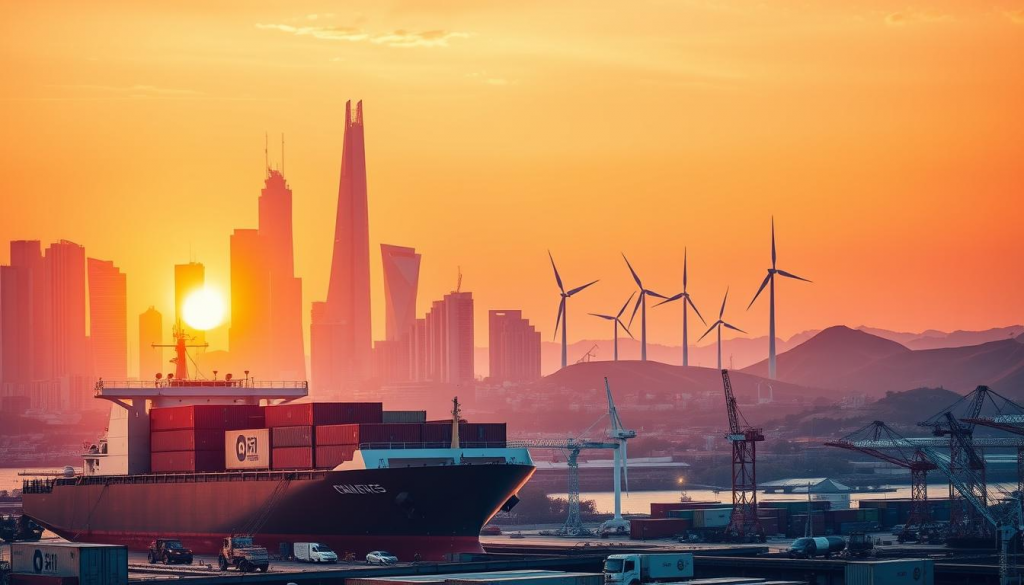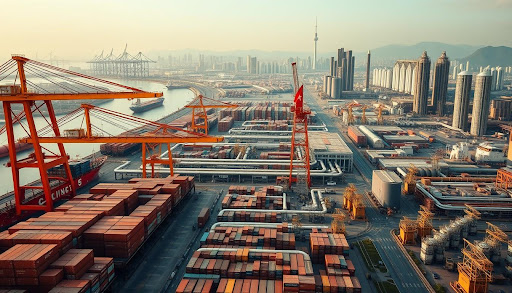China and Africa have been developing a close relationship over the years and energy is one of the key elements of trade between the two. This trade is very dynamic, and it is imperative to understand it to understand the future of the energy landscape in Africa.
Through the Chinese customs data, we are able to get some insight about the trends and pattern of their energy trade with Africa. Such data gives us an insight into the amount of energy resources being exchanged and the kind to be traded, thus enabling us to foresee the future in the region.
Key Takeaways:
- Chinese customs data offers insights into Africa’s energy trade trends.
- The data assists in the forecasting of the future of the energy in Africa.
- The China-Africa energy trade is quite important to the energy stakeholders.
- The future of energy in Africa is firmly linked with trading with China.
- Customs data analysis may help expose the trends of energy resource trading.
Revealed through the customs data, China-Africa Energy Trade:
The complex nature of China Africa energy trade can be resolved with the help of customs data. This information gives a clear picture of the energy investments and the trade pattern between China and Africa.
The Scale and Growth of Chinese Energy Investments:
The energy investments of the Chinese in Africa have experienced a tremendous growth over the years. According to customs data, these investments have been centered on exploration of oil and gas. The size of such investments is also high, and China has become one of the biggest investors in the energy sector in Africa.
Key Resource-Rich African Countries in Focus:
Other countries to which China has invested in energy include Angola, Nigeria and South Africa. Chinese investors are presented with good opportunities in these countries, rich in energy resources.
Changing Trends in the export of Energy commodities to China:
The trends in exportation of energy commodities in Africa to China have changed significantly.
The statistics show that there is an increase in the exportation of refined petroleum products with a decrease in crude oil exports.
This trend is the indication of the dynamics of reaching the global energy market and the changing role of Africa in it.
What Chinese Customs Data Reveals About Africa’s Energy Transition:
Through the data of Chinese customs, we acquire a better insight into the forces that are driving the energy transition in Africa. This information gives us a clue of the nature of energy equipment that Africa is importing in China and the traditional energy resources that Africa is exporting.
Importation to China on Renewable Energy Equipment:
There has been an increasing amount of renewable energy equipment imported to Africa by China. This comprises solar panels and wind turbines, which are vital in ensuring Africa switches to renewable energy sources.
Solar Panel and Wind Turbine Trade Volumes:
There has been a vast increase in the trade volumes of solar panels and wind turbines between China and Africa. An example is when in 2022 Africa imported solar panels valued at 1.2 billion dollars by China or a 20 percent incremental rise over prior year.
Traditional Energy Resource Exports to China:
Regardless of the development of renewable sources, Africa still sells substantial volumes of traditional sources of energy to China. This comprises oil, gas and coal.
Oil, Gas, and Coal Export Trends:
The trends of exports reveal that although the country continues to be highly dependent on the conventional energy sources, it is gradually moving towards renewable energy. As an example in 2022, the exports of oil to China amounted to $5 billion, which is slightly less than 5.5 billion in 2021.
Infrastructure Development Materials in Customs Data:
Chinese customs also show that they import infrastructure development tools in Africa including steel and cement that are essential in constructing renewable energy infrastructure.
| Year | Solar Panels Imported ($ billion) | Wind Turbines Imported ($ billion) |
| 2020 | 0.8 | 0.5 |
| 2021 | 1.0 | 0.7 |
| 2022 | 1.2 | 0.9 |

Renewable Energy Imports:
Conclusion: The Future African Energy Landscape Through the Lens of Chinese Trade
The analysis of Chinese customs data reveals a complex and evolving African energy landscape. The heavy investments that China has made in the power sector of Africa can be seen as an indicator of its dedication in ensuring that it has energy sources as well as growing its influence throughout the world.
The emergence of more diversified energy mix in Africa is a phenomenon in which Chinese trade is instrumental in determining the Future of energy in Africa. The figures point to the increasing trend in the imports of renewable energy equipment in China; this indicates a possibility that the African Energy will switch to cleaner sources of energy.
The continued export of traditional energy resources to China highlights the ongoing reliance on fossil fuels. The imported infrastructure development materials by China however dictate a long term commitment to the energy infrastructure development of Africa which will be essential in supporting the increased energy demands of the continent.
With the dynamic African energy environment, the role that the Chinese Trade plays will be indispensable in forecasting the future in the African energy context. The lessons of Chinese customs statistics serve as a legitimate forecast of the energy future of Africa as they show that it is necessary to invest further in a mixture of energy sources and infrastructure.
FAQ:
Why is Chinese customs data important in seeing the energy future of Africa?
The Chinese customs data will be useful in knowing the energy trade relations between China and Africa meaning the size and increasing trend of Chinese energy investments, the trend on the export of energy commodities and the contribution of Chinese trade to the energy transformation in Africa.
What data on Chinese customs is used to show the extent and increase of Chinese energy investments in Africa?
Through examination of Chinese customs data, we will be able to know the major resource-endowed African countries propelling the energy trade, and know the pattern and implication of Chinese energy investment in the region.
What is the Chinese customs data telling us about the energy transition in Africa?
Chinese customs statistics show that Africa is shifting towards renewable energy sources and imports of renewable energy equipment into Africa are growing including solar panels and wind turbines, although the traditional sources of energy resources still feature prominently in its exports to China.
What is the effect of Chinese trade on the African energy scene?
The Chinese trade is important to help Africa to shift towards renewable energy sources as they not only import renewable energy equipment and infrastructure development materials, but also facilitate the continuing relevance of traditional energy resources.
Which are the major energy commodities that are exported by Africa to China?
Oil, gas and coal are the most important energy commodities Africa exports to China, and Chinese customs data gives clues about the trends and implications of these export to the energy industry in Africa.
What can Chinese customs data tell us about the future energy picture of Africa?
Through the analysis of Chinese traditions, we will be able to understand better how Africa’s energy future is being shaped as well as, of course, what part is played by Chinese trade, and theorize about the future dynamics of the energy industry in the region.


